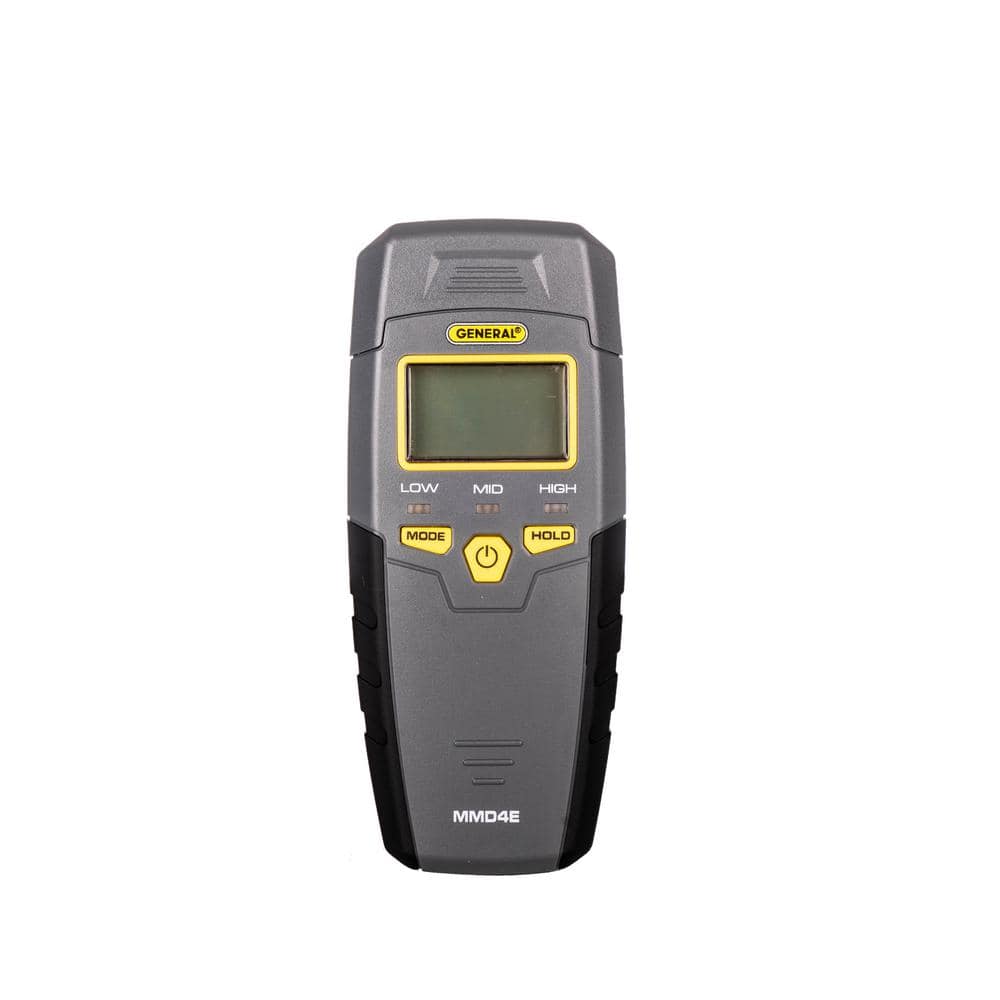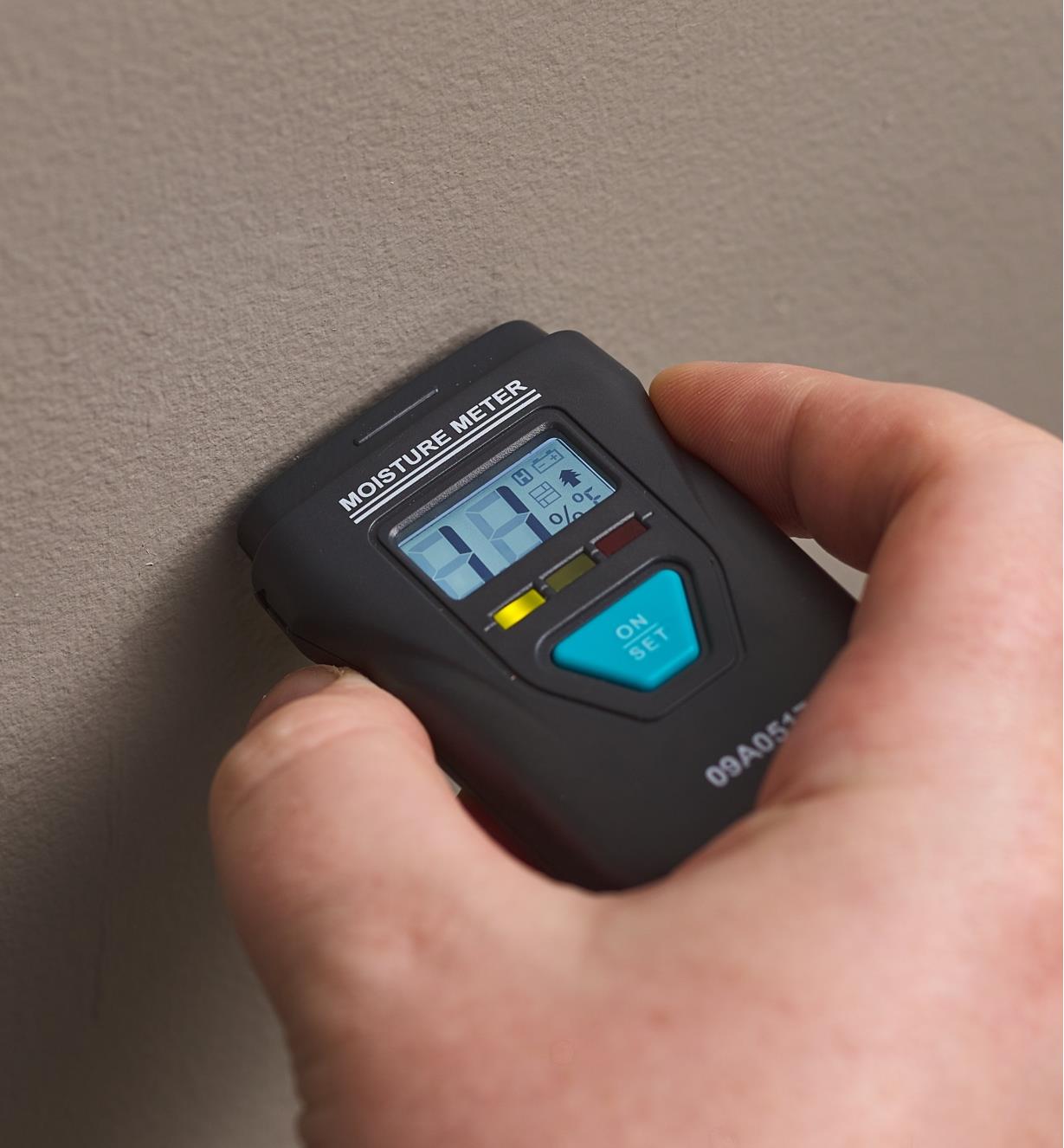The Science Behind Moisture Meters: How They Work and Why They're Important
The Ultimate Guide to Dampness Meters: A Comprehensive Summary and Exactly How They Can Save You Cash
In the realm of building upkeep, building and construction, and various industries, the relevance of properly determining dampness degrees can not be overstated. Wetness meters work as indispensable devices in finding and keeping an eye on moisture content in materials, helping in avoiding pricey damages and ensuring the high quality of items. Comprehending the nuances of different kinds of wetness meters, their applications, and the potential cost-saving benefits they offer can be a game-changer for professionals and services alike. Discovering just how these tools can not only simplify processes yet also add to monetary cost savings is a journey worth embarking on.
Types of Moisture Meters
One typical type is the pin-type wetness meter, which determines the electrical resistance between 2 pins put right into a material. Pinless moisture meters, on the other hand, use electro-magnetic sensing unit plates to check a larger area without causing damage to the product's surface area.

Furthermore, there are also specialized dampness meters developed for particular products like grain, dirt, or hay. These meters offer accurate wetness analyses customized to the distinct buildings of the material being tested. Infrared wetness meters measure the thermal buildings of a product to identify its moisture material non-invasively, making them useful for applications where pin or pinless meters might not appropriate. Understanding the various sorts of dampness meters available can assist markets choose one of the most proper tool for their certain moisture dimension demands.

Benefits of Using Wetness Meters
Dampness meters provide invaluable advantages in properly analyzing and monitoring wetness levels in diverse products and settings. One of the primary benefits of using dampness meters is the avoidance of potential damage caused by excess moisture.
In addition, utilizing dampness meters can lead to enhanced power effectiveness. In agricultural setups, moisture meters play a vital role in enhancing plant yields by enabling farmers to check soil wetness degrees and make informed irrigation choices.
Just How to Pick the Right Wetness Meter
Picking the appropriate wetness meter includes taking into consideration essential aspects such as product compatibility, dimension range, and calibration accuracy. When selecting a dampness meter, it's important to make sure that the meter appropriates for the details material you will be testing. Different products have differing electric homes that can impact dampness analyses, so picking a meter designed for your material is important for precise results. Additionally, consider the measurement range of the dampness meter. Guarantee that the meter can find dampness levels within the variety required for your applications. Calibration accuracy is one more important aspect to bear in mind. Decide for a dampness meter with reputable calibration to ensure specific and regular analyses. Some meters may require routine calibration adjustments, so recognizing the calibration procedure is essential. By thoroughly examining these aspects, you can select a moisture meter that meets your demands and gives precise wetness measurements for your tasks.
Appropriate Techniques for Dampness Meter Usage

Expense Cost Savings With Moisture Meter Applications
How can the calculated use of wetness meters result in significant cost financial savings throughout different markets? Moisture meters play an important role in price financial savings by avoiding potential damages and making sure high quality control in different fields. In the farming industry, wetness meters aid in determining the optimum time for collecting plants, stopping over-drying or excess moisture that can influence the end product's quality. This specific tracking aids farmers prevent unnecessary losses and optimize their return.
Likewise, in building and construction, moisture meters aid avoid pricey damages by identifying wetness degrees in building materials, such as timber or concrete, which can lead to you could look here structural concerns if not attended to promptly. By determining trouble locations at an early stage, service providers can take rehabilitative steps to prevent substantial repair services or substitutes, ultimately saving money and time.
Furthermore, in the food processing market, dampness meters are important for keeping an eye on item quality and guaranteeing compliance with safety and security regulations. By accurately determining wetness web content in foodstuff, manufacturers can prevent putridity, preserve quality, and lower waste, causing significant cost savings. In general, the tactical application of wetness meters is a useful financial investment that can bring about significant price decreases and boosted performance throughout different markets.
Final Thought
Finally, dampness meters are useful devices for finding and determining wetness levels in various materials. By making use of the appropriate dampness meter and complying with appropriate techniques, users can efficiently stop expensive damages triggered by excess dampness. Purchasing a high quality moisture meter can bring about substantial expense savings in the long run by identifying possible problems early on and making it possible for punctual remediation. Ultimately, dampness meters are necessary instruments for keeping the stability and longevity of products and structures.
Wetness meters offer as vital tools in finding and keeping track of moisture web content in materials, assisting in preventing pricey problems and making certain the high quality of items. Infrared moisture meters determine the thermal buildings of a material to identify its dampness content non-invasively, making them beneficial for applications where pin or site link pinless meters might not be more helpful hints suitable.Wetness meters supply important benefits in properly monitoring and evaluating wetness degrees in varied products and environments. In agricultural settings, dampness meters play a vital duty in optimizing crop yields by making it possible for farmers to monitor dirt dampness degrees and make educated watering choices.In conclusion, moisture meters are valuable devices for finding and determining dampness degrees in numerous products.